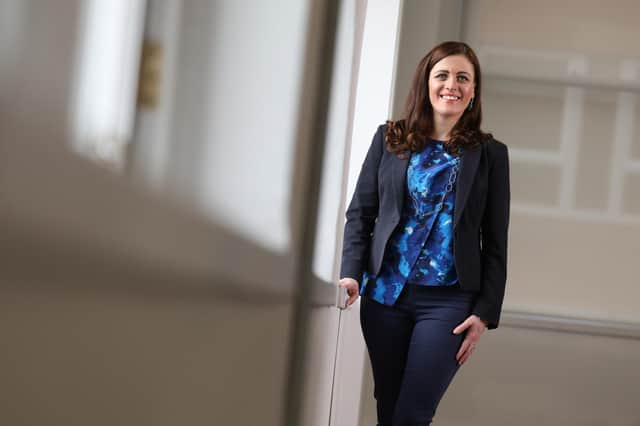The four questions that bring ingenuity to life - comment


From James Watt’s application of the steam engine to drive factory production to John Boyd Dunlop putting the industry on wheels with the pneumatic tyre, we’ve helped drive progress through ingenuity.
The world needs our ingenuity now, more than ever, as it faces existential challenges like pandemics and climate change. The Scottish economy and business world have all the skills and capabilities needed to respond. From energy and engineering skills to world-leading scientific institutions. The opportunity is there for Scottish business leaders to harness these skills and find the commercial opportunity in technology and innovation.
Advertisement
Hide AdAdvertisement
Hide AdTo identify the right opportunity for commercial innovation requires business leaders to ask themselves four things. Firstly, what need does technology meet? What gap does it fill in peoples’ lives? Profit is only ever an outcome of adding value to society. Your innovation must solve a problem.
Secondly, is the idea technologically feasible? There’s no point spending heavily on something if science and engineering won’t support it. This is not easy, especially while running a going concern. At PA Consulting, we use our “Dark Matter” artificial intelligence analysis and research tools to help businesses scan the landscape for the right innovation opportunities.
Third, is there a commercial business in this? Many technologies fail in the “valley of death” between technological feasibility and commerciality. Starting with the commerciality in mind is key; don’t let yourself get drawn to the cool tech with no real business model.
Today, the fourth question is more important than ever – is the idea sustainable? Sustainability, whether it’s preventing waste or minimising emissions, is also a huge opportunity for innovation. As specialist technical advisors to the UN global compact, we know that to produce, consume and dispose is no longer an acceptable way forward for business; circularity by design must be considered in any innovation or business opportunity.
Swedish business, PulPac came to us with an idea on how to use their dry form pressing process to give cellulose pulp the tensile strength and flexibility of plastic, with higher quality and lower cost. Meaning good old paper can replace everyday plastics such as fruit cups, razors, and coffee pods.
Commercialisation
This wouldn’t have happened without the human need for a sustainable replacement of the 300 million tonnes of plastic we produce every year, half of it single use. We helped PulPac commercialise its idea, and we are now seeing the first commercial-scale production lines installed by consumer goods companies across the globe.
Another technology that shows that commercial opportunity can grow from adversity is Airora. This recreates the safety of outdoor air indoors, harnessing natures detergent, Hydroxyl Radicals, to make indoor enclosed spaces just as safe from pathogens like Covid-19 as the great outdoors. Scottish manufacturers are also in the running to benefit from this new technology, as they look to partner with us to produce Airora at scale to help address the current pandemic.
The process combines ozone, UV light and plant oils to produce hydroxyl radicals that condense on any pathogen – like a virus or bacteria – and neutralise it. After joining forces with start-up Hydroxyl Technologies in April, we’ve developed the technology to the point where the first units are going into NHS hospitals this month.
Advertisement
Hide AdAdvertisement
Hide AdIt’s a reminder that real breakthroughs, like motorised transport or even bagless vacuums, are so dramatic that no one imagined them. Yet, once they take commercial shape, they become indispensable.
With this sort of thinking, profit is a by-product, not the sole purpose. Searching for that unmet human need is vital to what we at PA call a positive human future. And it’s a spur to ingenuity that Watt and Dunlop would surely have welcomed to herald our country, economy and humanity forward.
Kim McCann is a sustainable aviation expert and partner at PA Consulting
A message from the Editor:
Thank you for reading this article. We're more reliant on your support than ever as the shift in consumer habits brought about by Coronavirus impacts our advertisers.
If you haven't already, please consider supporting our trusted, fact-checked journalism by taking out a digital subscription.
Comments
Want to join the conversation? Please or to comment on this article.